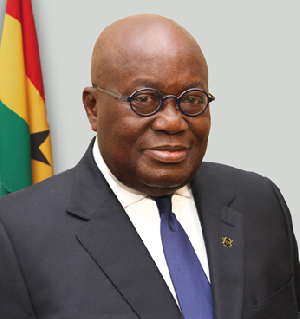
President Nana Addo Dankwa Akufo-Addo has delivered on his promise to allow citizens of all African countries to enter Ghana without a visa.
The pledge was made in January at the Africa Prosperity Dialogues (APD 2024) with the goal of improving the free flow of people, products, and services throughout the continent.
This policy is scheduled to go into effect prior to Akufo-Addo's term ending on January 6, 2025, after receiving executive approval on Wednesday, December 18, 2024.
With this program, the African Union's goal of economic unification through the African Continental Free Trade Area (AfCFTA) is one step closer to reality.
Ghana will become the only African nation to grant visa-free entrance to all holders of African passports, joining Rwanda, Seychelles, The Gambia, and Benin.
The action is anticipated to improve cooperation between African governments and companies and support initiatives to establish the largest single market in the world, which will include 55 countries.
President Akufo-Addo reiterated Ghana's commitment to the visa-free program in his keynote speech for APD 2024, which has as its theme "Developing Prosperity in Africa: Produce, Add Value, and Trade."
He mentioned a particular agreement that lowered visa costs for attendees, saying, "Many of you had to acquire a visa to attend this event."
He gave participants his word that "the Ghanaian government is committed to ensuring visa-free travel for all Africans, and the process has begun to implement the policy this year."
The Ministry of the Interior and the Ministry of Foreign Affairs and Regional Integration have now received the policy and are getting ready to implement it.
The official commencement date, which is projected to be Wednesday, January 1, 2025, will be announced by the Ghana Immigration Service.
The action is anticipated to strengthen Ghana's standing as a pioneer in African unification and integration by promoting trade, tourism, and cultural interchange throughout the continent.
The significance of this undertaking is highlighted by criticism of restrictive immigration laws in other African countries.
The richest man in Africa, business magnate Aliko Dangote, emphasized the difficulties of negotiating immigration regulations throughout the continent.
He said during a business gathering in Rwanda, "I have to apply for 35 different visas as an investor."
Mr. Dangote's comments highlight the difficulties faced by African investors and businesspeople, who frequently find it simpler to travel to the US or Europe than to their neighboring African nations.
The AfCFTA Secretariat is based in Ghana, which has long supported the idea of an Africa without borders, which was initially put forth by Dr. Kwame Nkrumah, the organization's founder.
Ghana's move is a progressive example, even if Ethiopia, the location of the African Union's headquarters, has come under fire for its stringent visa requirements.